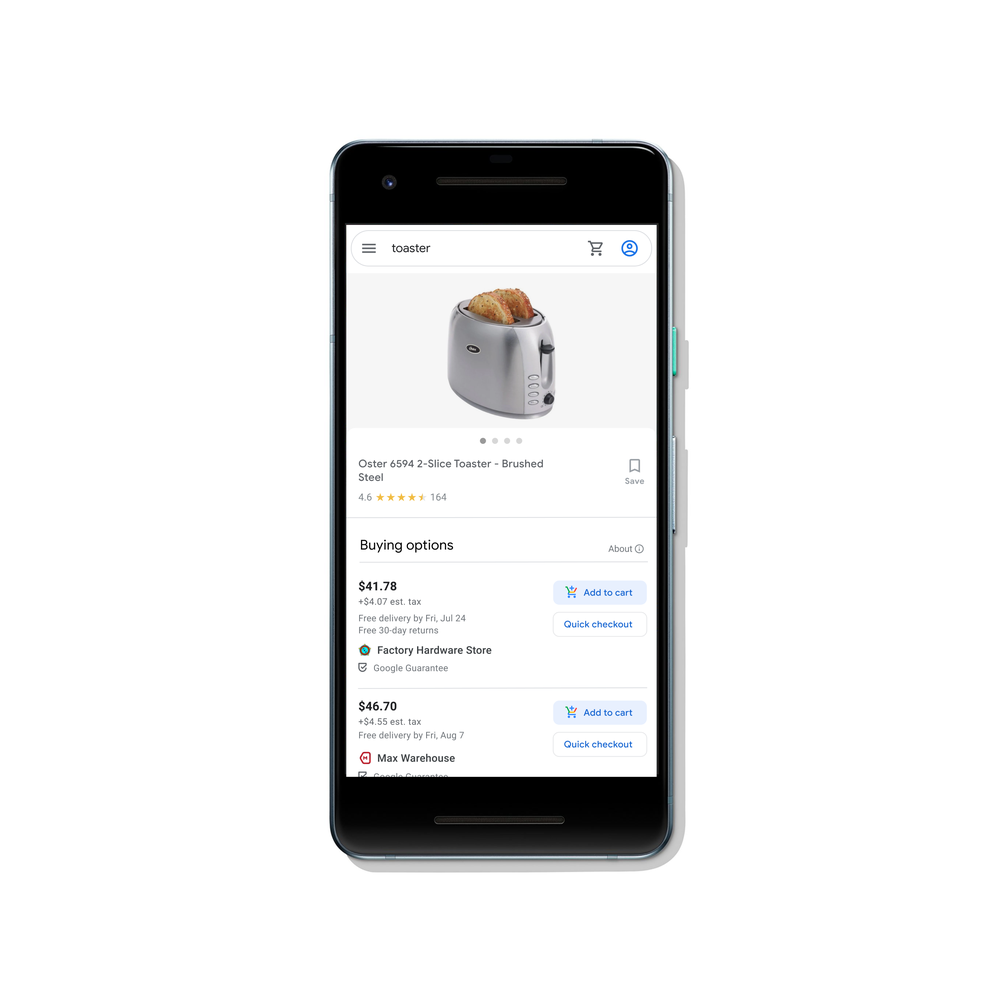Earlier this year, in an attempt to boost small businesses and provide digital resources and tools for merchants looking to transition online, Google stopped charging a fee to list products on its Google Shopping search pages. That proved extremely helpful during the Covid-19 crisis as e-commerce became the only vital sales channel for retailers that were forced to close their brick-and-mortar stores and gave them free exposure to millions of people who use Google for shopping-related searches.
Google’s motivation
That announcement was a reliable indicator that the company is investing in developing and maturing its online shopping services, making them more compelling to merchants and consumers alike. It also helps Google facing the growing threat from Amazon pushing harder into the digital advertising market lately.
Amazon has become the most popular starting point for product searches in recent years leading many marketers to shift up to 60% of the search budgets they usually allocate to Google toward Amazon. Along with the announcement of the free listings, the tech giant is strengthening its relationships with e-commerce partners like Shopify, WooCommerce, and BigCommerce.
Buy on Google becomes commission-free for US merchants

At the end of July 2020, Google Shopping made its second significant change in the last few months making the ”Buy on Google” program available to US merchants, commission-free. “Buy on Google” allows consumers to purchase products from merchants online without leaving Google by using their saved Google Account information during check-out.
Google is enabling commonly-used product feed formats that allow retailers to connect their inventory to sell directly on Google without having to reformat their data. The program will also enable retailers to add product information like images or technical specs by pulling from Google’s existing database rather than having to upload it themselves.
Third-party integrations, support for small businesses, and US launch
Google also announced its collaboration with digital payments company PayPal and multinational e-commerce company Shopify that will allow merchants to link their respective accounts. Retailers listing their products on the Google Shopping search pages can use Shopify for inventory and order management and PayPal and Shopify for payment processing.
In an effort to support small, independent businesses, the company is also planning on adding a new “small business” filter on the Google Shopping tab among other features. According to Bill Ready, president of commerce in Google, the “Buy on Google” commission-free offering will begin with US merchants. However, Google is looking toward making it available in other countries later this year and 2021.
Conclusion
By making “Buy on Google” commission-free, the tech giant will help many small businesses that could not afford to do that at scale, to reconnect with their customers and reach new ones. Moreover, as most people start their product searches on Amazon than Google, allowing retailers to list their products on the Shopping tab for free, will enable more businesses and products available for searchers. And as the only requirement of merchants on Google is the creation of the product feed, Google now has a free offering where Amazon does not.
Nevertheless, with free listings available, many merchants might start wondering if they should change their Google Ads shopping marketing strategy or even use that advertising budget for something completely different. Most probably, there is no need to change your approach. The reason for that is that the aforementioned free listings appear only on the Shopping tab and not on the main search result page (the “All” tab) where most traffic likely comes from. Additionally, all paid listings appear on the Shopping tab as well, above the free ones.
The free listings will help you reach new customers, generate more traffic, and support your paid ones. But when it comes to “Buy on Google” program’s commission-free listings, several merchants are voicing concerns regarding the brand implications joining the program might have. The entire shopping journey - product search, product comparison, and purchase transactions - now occur solely on Google and not the merchant’s website. That might diminish the retailer’s branding, especially that of small companies.
Header image source: https://blog.google